The Bat Read online
Page 14
She pointed to a table and Harry recognised the elegant black man at once. It was Toowoomba, the boxer. He went over to his table.
‘Am I disturbing you?’ he asked, and was met with a broad smile.
‘Not at all. Sit down. I was sitting here to see if an old mate of mine would show up.’
Harry sat down.
Robin ‘The Murri’ Toowoomba continued to smile. For some reason one of those embarrassing pauses sprang up that no one admits is embarrassing, but which actually is.
Harry said hurriedly: ‘I was talking to one of the Crow people today. What tribe do you belong to?’
Toowoomba regarded him with surprise in his eyes. ‘What do you mean, Harry? I’m from Queensland.’
Harry could hear how foolish his question sounded. ‘Sorry, that was a stupid question. My tongue has a tendency to move faster than my brain today. I didn’t mean to . . . I don’t know a great deal about your culture. I was wondering if you came from a particular tribe . . . or something like that.’
Toowoomba patted him on the shoulder. ‘I’m just teasing you, Harry. Relax.’ He laughed quietly and Harry felt even more stupid.
‘You react like most whities,’ Toowoomba said. ‘What else can you expect? It goes without saying that you’re full of prejudice.’
‘Prejudice?’ Harry could feel himself getting irritated. ‘Have I said anything—’
‘It’s not what you say,’ Toowoomba said. ‘It’s what you unconsciously expect of me. You imagine you’ve said something wrong, and it doesn’t occur to you that I’m intelligent enough to take into account that you’re a foreigner. I don’t suppose you would be personally offended if Japanese tourists in Norway didn’t know everything about your country? Such as your king being called Harald.’ Toowoomba winked. ‘It’s not just you, Harry. Even white Australians are hysterically cautious about saying something wrong. That’s what’s so paradoxical. First of all, they take our people’s pride, and when it’s gone they’re scared to death of treading on it.’
He sighed and opened his large white palms. Like turning a flounder, Harry thought.
Toowoomba’s warm, deep voice seemed to vibrate on its frequency, rendering it unnecessary to speak loudly to drown all the noise around them.
‘But you tell me something about Norway, Harry. I’ve read it’s supposed to be very beautiful there. And cold.’
Harry talked. About fjords, mountains and people living between the two. About unions, suppression, Ibsen, Nansen and Grieg. And about the country to the north that saw itself as enterprising and forward-looking, but seemed more like a banana republic. Which had forests and harbours when the Dutch and English needed timber, which had waterfalls when electricity was invented and which, best of all, discovered oil outside its front door.
‘We’ve never made Volvo cars or Tuborg beer,’ Harry said. ‘We’ve just exported our nature and avoided thinking. We’re a nation with golden hair up our arses,’ Harry said, not even trying to select an appropriate English idiom.
Then he told him about Åndalsnes, a tiny settlement up in Romsdalen Valley, surrounded by high mountains which were so beautiful that his mother had always said that that was where God had started when He was creating the world, and that He had spent so long on Romsdalen that the rest of the world had to be done post-haste to be finished by Sunday.
And fishing with his father on the fjord early in the morning, in July, and lying on the shore and smelling the sea – while the gulls screamed and the mountains stood like silent, immovable guards around their little kingdom.
‘My father’s from Lesjaskog, a little settlement further up the valley, and he and my mother met at a village dance in Åndalsnes. They always talked about moving back to Romsdalen when they retired.’
Toowoomba nodded and drank beer, and Harry sipped at another grapefruit juice. He could feel the acidity in his stomach.
‘I wish I could tell you where I come from, Harry. It’s just that people like me have no real connection to a place or a tribe. I grew up in a hut under a freeway outside Brisbane. No one knows which tribe my father came from. He came and went so fast that no one had time to ask. And my mother doesn’t give two hoots where she comes from, so long as she can scrape together enough money for a bottle of wine. Being a Murri will have to do.’
‘And what about Andrew?’
‘Hasn’t he told you?’
‘Told me what?’
Toowoomba withdrew his hands. A deep frown settled between his eyes. ‘Andrew Kensington’s even more rootless than I am.’
Harry didn’t question him any further, but after another beer Toowoomba returned to the topic.
‘I suppose I ought to let him tell you this himself, because Andrew had a very special upbringing. You see, he belongs to the family-less generation of Aboriginals, the Stolen Generation.’
‘What do you mean?’
‘It’s a long story. Everything revolves around a bad conscience. Ever since the end of the nineteenth century the politics surrounding Indigenous peoples has been governed by the authorities’ bad conscience about the terrible treatment we’ve received. Just a shame that good intentions don’t always lead to good results. If you want to govern a nation you have to understand it.’
‘And the Aboriginal people haven’t been understood?’
‘There have been different phases, different policies. I belong to the forcibly urbanised generation. After the Second World War the authorities considered they had to change earlier policies and try to assimilate rather than isolate Indigenous inhabitants. They tried to do that by controlling where we lived and even who we married. Many were sent to towns to adapt to European urban culture. The results were catastrophic. Within a very short time we topped all the wrong statistics: alcoholism, unemployment, marital break-ups, prostitution, criminality, violence, drugs – you name it, we were there. Aboriginals were and have always been Australia’s social losers.’
‘And Andrew?’
‘Andrew was born before the war. At that time the authorities’ policy was to “protect” us as though we were some kind of endangered species. Therefore opportunities for owning land or looking for work were limited. But the most bizarre legislation was the law allowing authorities to remove a child from an Aboriginal mother if there was a suspicion that the father was not Aboriginal. I may not have the world’s most pleasant story about my origins, but at least I have one. Andrew has nothing. He has never seen his parents. When he was born the authorities collected him and put him in a children’s home. All he knows is that after they had robbed his mother, she was found dead in a bus shelter in Bankstown, fifty kilometres north of the children’s home, and no one knew how she had got there or what the causes of her death were. The white father’s name was withheld until Andrew no longer cared.’
Harry struggled to absorb all of this. ‘Was that really legal? What about the UN and the Universal Declaration of Human Rights?’
‘None of that came until after the war. And don’t forget that Aboriginal politics had the best of intentions. The goal was to preserve the culture, not to destroy it.’
‘What happened to Andrew then?’
‘They realised he was academic and sent him to a private school in England.’
‘I thought Australia was too egalitarian to send children to private schools.’
‘All this was administered and paid for by the authorities. I suppose the intention was that Andrew should stand as a shining example of a political experiment that had otherwise caused so much pain and so many human tragedies. On his return, he went to Sydney University. That was when they started to lose control of him. He ended up in trouble, had a reputation for being violent and his grades suffered. My understanding is there was an unhappy love affair somewhere in the picture, a white woman who left him because her family was not very enthusiastic, but Andrew has never shown much interest in talking about it. It was, nevertheless, a difficult period in his life, and it could easily have been w
orse than it was. While he was in England he learned to box – he claimed that was how he had survived boarding school. In Sydney he took up boxing again and when he was offered the chance to travel with Jim Chivers he dropped out of university and got away for a while.’
‘I’ve just seen him box,’ Harry said. ‘He hasn’t forgotten much.’
‘In fact, he’d only thought of boxing as a break from his studies, but he was successful with Chivers, the press began to show some interest and he carried on. When he boxed his way through to the final of the Australian championships, there were even a couple of professional agents from the USA over to have a look at him. However, something happened in Melbourne the night before the final. They were at a restaurant, and it was claimed that Andrew tried it on with the girlfriend of the other finalist. His name was Campbell, and he was with a nice-looking North Sydney girl who later became Miss New South Wales. There was a fight in the kitchen and everyone there, Andrew, Campbell’s trainer, the agent and another bloke, smashed everything in sight.
‘They found Andrew hanging over the washbasin with a split lip, cuts to his forehead and a sprained wrist. No one was reported – that’s probably why the rumour spread he’d made a pass at Campbell’s girlfriend. At all events, Andrew had to withdraw from the final, and afterwards his boxing career seemed to flag. To be fair, he did knock out a couple of good boxers in some tournaments, but the press had lost interest and the professional agents never showed up again.
‘Bit by bit he stopped boxing at tournaments – another rumour had it he had started drinking, and after one tournament on the west coast he was asked to leave the Chivers team, apparently because he had inflicted serious injuries on some amateurs. After that he disappeared. It’s been difficult to get out of him exactly what he was doing, but at any rate he was drifting aimlessly around Australia for a couple of years until he went back to university.’
‘So boxing came to an end?’ Harry said.
‘Yes,’ Toowoomba replied.
‘What happened then?’
‘Well.’ Toowoomba signalled that he wanted the bill. ‘Andrew was probably more motivated when he went back to studying and for a while things went well. But it was the early 1970s, hippies, party time and free love, and he may well have been taking various substances which weren’t helpful to his studies, and his exam results were so-so.’
He chuckled to himself.
‘So one day Andrew woke up, got out of bed, looked at himself in the mirror and took stock. He had a terrible hangover, a black eye – God knows where from – probably a growing addiction to certain chemical compounds, and was over thirty without any qualifications. Behind him lay a ruined career as a boxer and before him, to put it mildly, an uncertain future. So what do you do then? You apply to Police College.’
Harry laughed.
‘I’m just quoting Andrew,’ Toowoomba said. ‘Unbelievably, he got in despite his record and advanced age – maybe because the authorities wanted more Aboriginal police officers. So Andrew had his hair cut, removed the ring from his ear, dropped the chemicals, and you know the rest. Of course, he’s a no-hoper as far as climbing up the career ladder is concerned, but he’s reckoned to be one of the best detectives in the Sydney force nevertheless.’
‘Still quoting Andrew?’
Toowoomba laughed. ‘Naturally.’
From the stage bar they could hear the finale of the evening’s drag show and ‘Y.M.C.A.’, the Village People version, a sure-fire winner.
‘You know a lot about Andrew,’ Harry said.
‘He’s a bit like a father to me,’ Toowoomba said. ‘When I moved to Sydney I had no plans, other than to get as far away from home as possible. I was literally picked up off the street by Andrew who started training me and a couple of other boys who had also lost their way. It was Andrew who made me apply to university as well.’
‘Wow, another university-qualified boxer.’
‘English and History. My dream is to teach my own people one day.’ He said that with pride and conviction.
‘And in the meantime you knock the shit out of drunken seamen and country bumpkins?’
Toowoomba smiled. ‘You need capital to make your way in this world, and I have no illusions about earning anything as a teacher. But I don’t just box amateurs; I’ve put my name forward for the Australian championships this year.’
‘To get the title Andrew didn’t?’
Toowoomba raised his glass to a toast. ‘Maybe.’
After the show the bar began to thin out. Birgitta had said she had a surprise for Harry, and he was impatiently waiting for closing time.
Toowoomba was still sitting at the table. He had paid, and was now twirling his beer glass. Harry had an indefinable feeling that Toowoomba wanted something; he didn’t only want to tell old stories.
‘Have you got any further with the case you’re here for, Harry?’
‘I don’t know,’ Harry answered. ‘Now and then you feel like you’re searching with a telescope and the solution’s so close to you it’s no more than a blur on the lens.’
‘Or you’re standing upside down.’
Harry watched him drain his glass.
‘I have to go, but let me tell you a story first which might help to redress your ignorance of our culture. Have you heard about the black snake?’
Harry nodded. Before he’d left for Australia he’d read something about reptiles you should be wary of. ‘If memory serves the black snake is not very impressive in size, but all the more venomous for that.’
‘That’s right, but according to the fable it wasn’t always like that. A long time ago, in the Dreamtime, the black snake was innocuous. However, the iguana was poisonous and much bigger than it is today. It ate humans and animals, and one day the kangaroo called all the animals to a meeting to find a way to overcome the ferocious killer – Mungoongali, the great chief of the iguanas. Ouyouboolooey – the black snake – the fearless, little snake immediately accepted the task.’
He continued in a low, calm voice while keeping his eyes fixed on Harry.
‘The other animals laughed at the little snake and said they would need someone bigger and stronger to fight Mungoongali. “Just you wait and see,” said Ouyouboolooey, and slithered off to the iguana chief’s camp. When he got there he greeted the huge brute and said he was only a little snake, not particularly good to eat, just searching for a place where he could be left in peace, away from the other animals that teased and tormented him. “Make sure you’re not in my way or it will be the worse for you,” Mungoongali said, not appearing to pay much attention to the black snake.
‘The next morning Mungoongali went hunting, and Ouyouboolooey slithered after him. There was a man sitting by a campfire. He had hardly blinked before Mungoongali had run at him and smashed his head with one powerful, well-aimed blow. Then the iguana put the man onto its back and carried him to its camp, where it unloaded the poison sac and started to consume the fresh human meat. As quick as lightning, Ouyouboolooey jumped out, took the poison sac and disappeared into the bushes. Mungoongali chased after the little snake, but couldn’t find him. The other animals were still in the meeting when Ouyouboolooey returned.
‘“Look at this,” he screamed and opened his jaws for all to see the poison sac. All the animals flocked around him and congratulated him on saving them from Mungoongali. After the others had gone home, the kangaroo went over to Ouyouboolooey and said he should spit the poison into the river so that they could sleep safe and sound in the future. But Ouyouboolooey answered by biting the kangaroo, who fell to the ground, paralysed.
‘“You’ve always despised me, but now it’s my turn,” said Ouyouboolooey to the dying kangaroo. “As long as I have this poison you will never be able to come near me again. None of the other animals will know I still have the poison. They will think that I, Ouyouboolooey, am their saviour and protector while I avenge myself on them one by one in my own good time.” With that he pushed the kangaroo into the ri
ver and it sank from view. He himself slithered back into the bushes. And that’s where you’ll find him today. In the bushes.’
Toowoomba put his lips to his glass, but it was empty and he got up.
‘It’s late.’
Harry got up, too. ‘Thanks for the story, Toowoomba. I’ll be heading back soon, so if I don’t see you, good luck at the championships. And with your future plans.’
Toowoomba held out his hand, and Harry wondered if he was ever going to learn. His hand felt like a piece of battered steak afterwards.
‘Hope you find out what the blur on the lens is,’ Toowoomba said. He had already gone by the time Harry realised what he was talking about.
24
The Great White
THE WATCHMAN GAVE Birgitta a torch.
‘You know where to find me, Birgitta. Make sure you don’t get eaten,’ he said, limping back into his office with a smile.
Birgitta and Harry walked along the dark, winding corridors of the large building that is Sydney Aquarium. It was almost two o’clock in the morning, and Ben, the nightwatchman, had let them in.
A casual question from Harry – why all the lights were off – had led to a detailed explanation from the old watchman.
‘Of course it saves electricity, but that’s not the most important reason – the most important reason is that we’re telling the fish it’s night. I think so, anyhow. Before, we used to turn off the lights with a standard switch, and you could hear the shock when all of a sudden everything went pitch black. A whoosh went through the whole aquarium as hundreds of fish dashed to hide or swam off in blind panic.’
Ben hushed his voice to a stage-like whisper and imitated the fish with zigzag hand movements.
‘There was a lot of splashing and waves, and some fish, mackerel for example, went stir-crazy and smacked into the glass and killed themselves. So we started using dimmers, which gradually reduce the light in line with daylight hours, aping nature. After that there was a lot less illness among the fish as well. The light tells your body when it’s day and night, and personally I feel the fish need a natural daily rhythm to avoid stress. They have a biological clock the same way we do, and you shouldn’t mess about with it. I know that some barramundi breeders in Tasmania, for example, give the fish extra light in the autumn. Trick them into thinking it’s still summer to make them spawn more.’

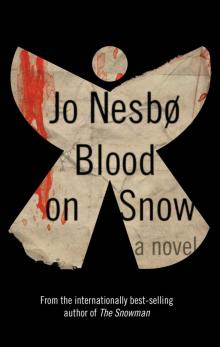 Blood on Snow: A novel
Blood on Snow: A novel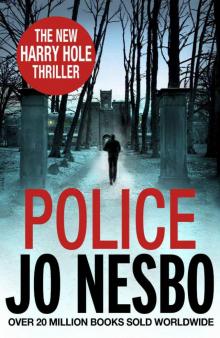 Police: A Harry Hole thriller (Oslo Sequence 8)
Police: A Harry Hole thriller (Oslo Sequence 8)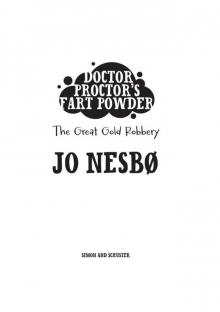 Doctor Proctor's Fart Powder: The Great Gold Robbery
Doctor Proctor's Fart Powder: The Great Gold Robbery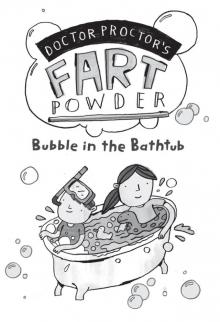 Bubble in the Bathtub
Bubble in the Bathtub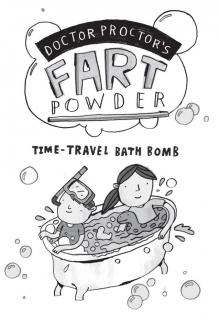 Doctor Proctor's Fart Powder: Time-Travel Bath Bomb
Doctor Proctor's Fart Powder: Time-Travel Bath Bomb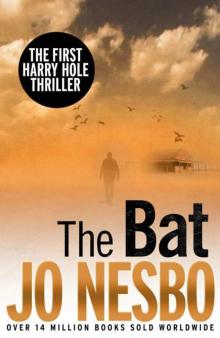 The Bat
The Bat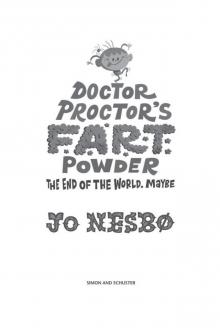 Doctor Proctor's Fart Powder: The End of the World. Maybe.
Doctor Proctor's Fart Powder: The End of the World. Maybe.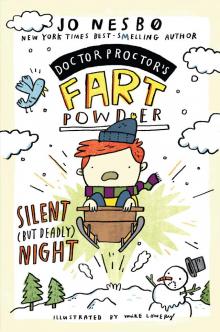 Silent (but Deadly) Night
Silent (but Deadly) Night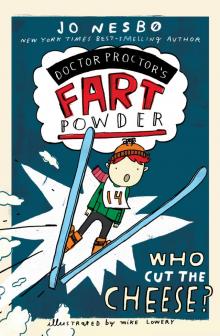 Who Cut the Cheese?
Who Cut the Cheese?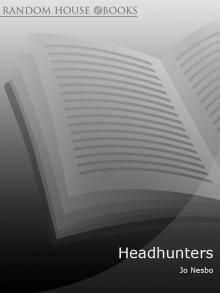 Headhunters
Headhunters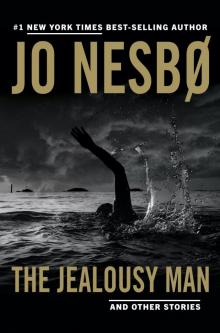 The Jealousy Man and Other Stories
The Jealousy Man and Other Stories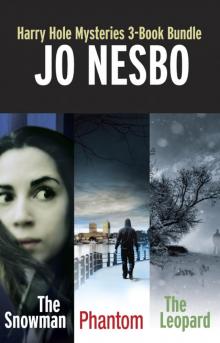 Harry Hole Mysteries 3-Book Bundle
Harry Hole Mysteries 3-Book Bundle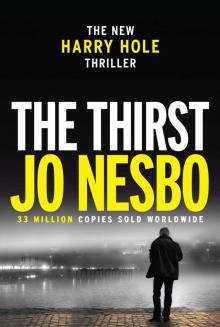 The Thirst
The Thirst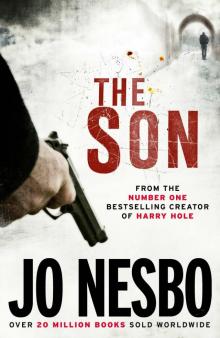 The Son
The Son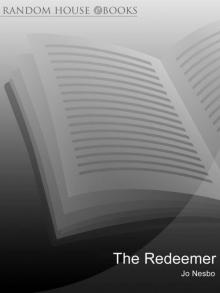 The Redeemer
The Redeemer The Kingdom
The Kingdom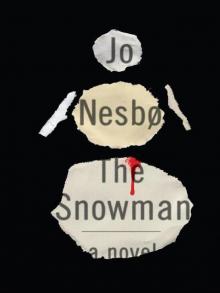 The Snowman
The Snowman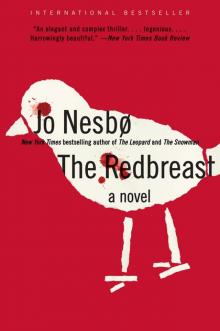 The Redbreast
The Redbreast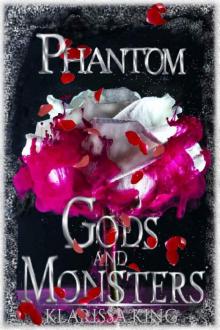 Phantom
Phantom Macbeth
Macbeth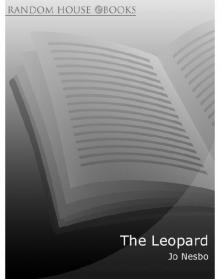 The Leopard
The Leopard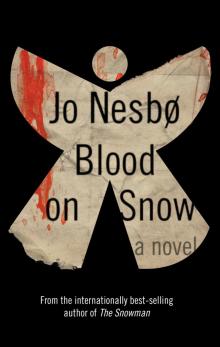 Blood on Snow
Blood on Snow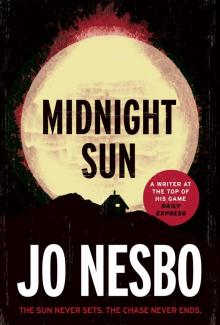 Midnight Sun
Midnight Sun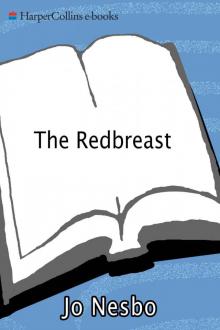 The Redbreast (Harry Hole)
The Redbreast (Harry Hole)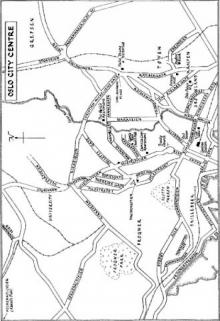 The Devil's Star
The Devil's Star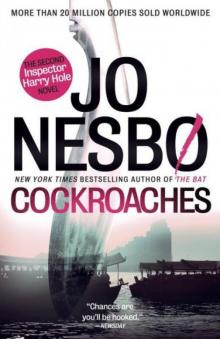 Cockroaches
Cockroaches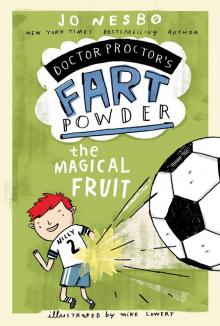 The Magical Fruit
The Magical Fruit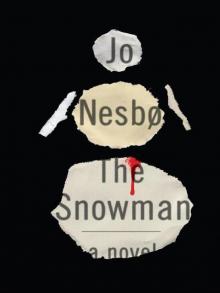 The Snowman: A Harry Hole Novel
The Snowman: A Harry Hole Novel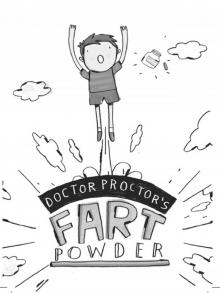 Doctor Proctor's Fart Powder
Doctor Proctor's Fart Powder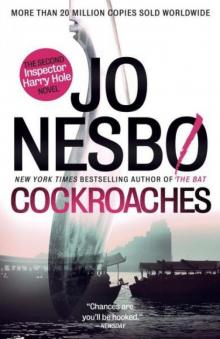 The Cockroaches
The Cockroaches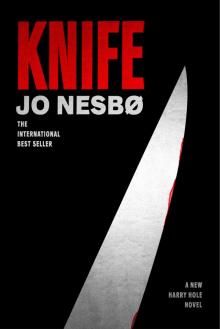 Knife
Knife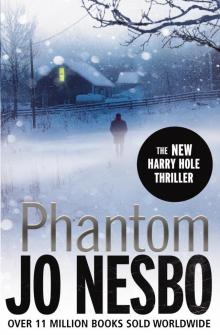 Phantom hh-9
Phantom hh-9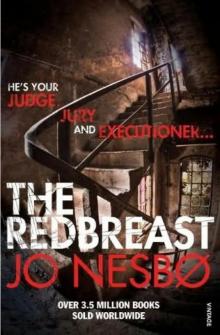 The Redbreast hh-3
The Redbreast hh-3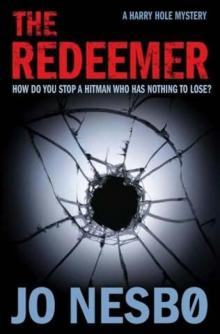 The Redeemer hh-6
The Redeemer hh-6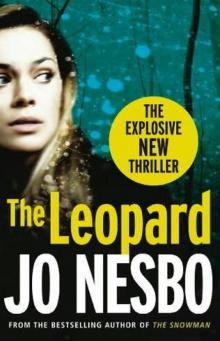 The Leopard hh-8
The Leopard hh-8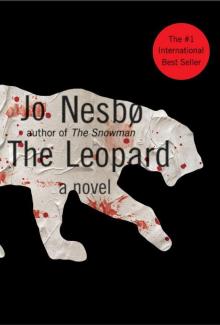 The Leopard: An Inspector Harry Hole Novel
The Leopard: An Inspector Harry Hole Novel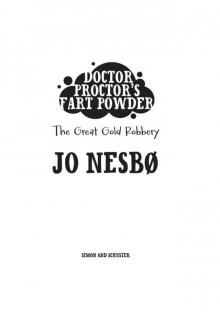 The Great Gold Robbery
The Great Gold Robbery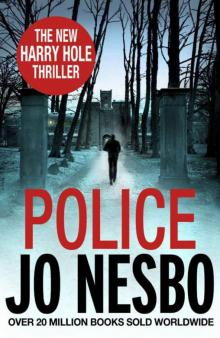 Police hh-10
Police hh-10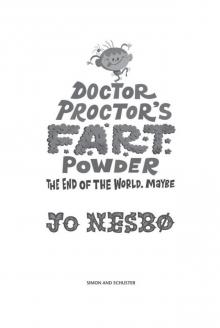 The End of the World. Maybe
The End of the World. Maybe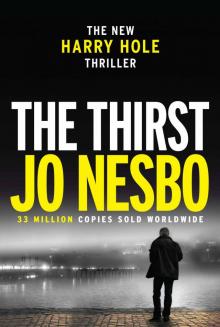 The Thirst: Harry Hole 11
The Thirst: Harry Hole 11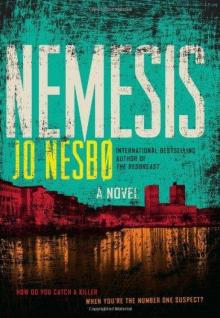 Nemesis - Harry Hole 02
Nemesis - Harry Hole 02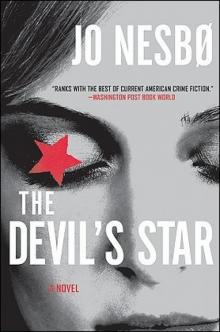 The Devil's star hh-5
The Devil's star hh-5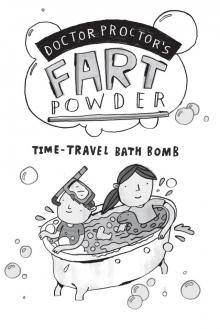 Time-Travel Bath Bomb
Time-Travel Bath Bomb